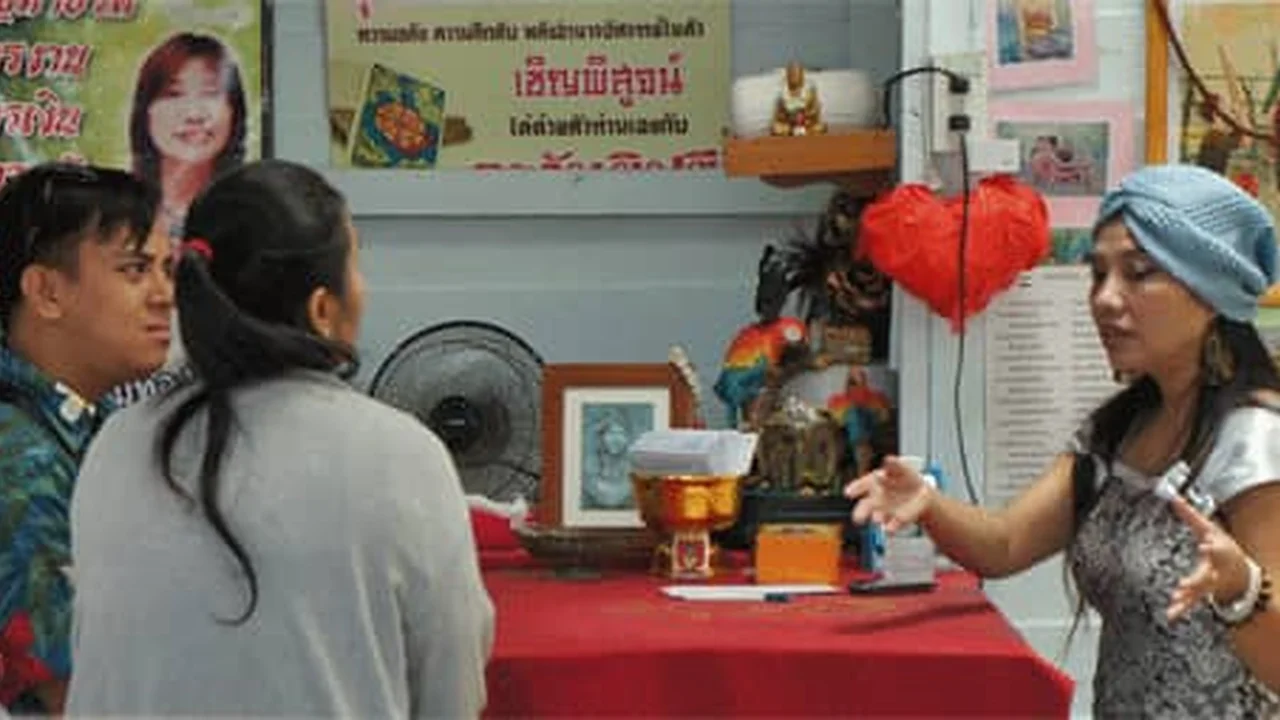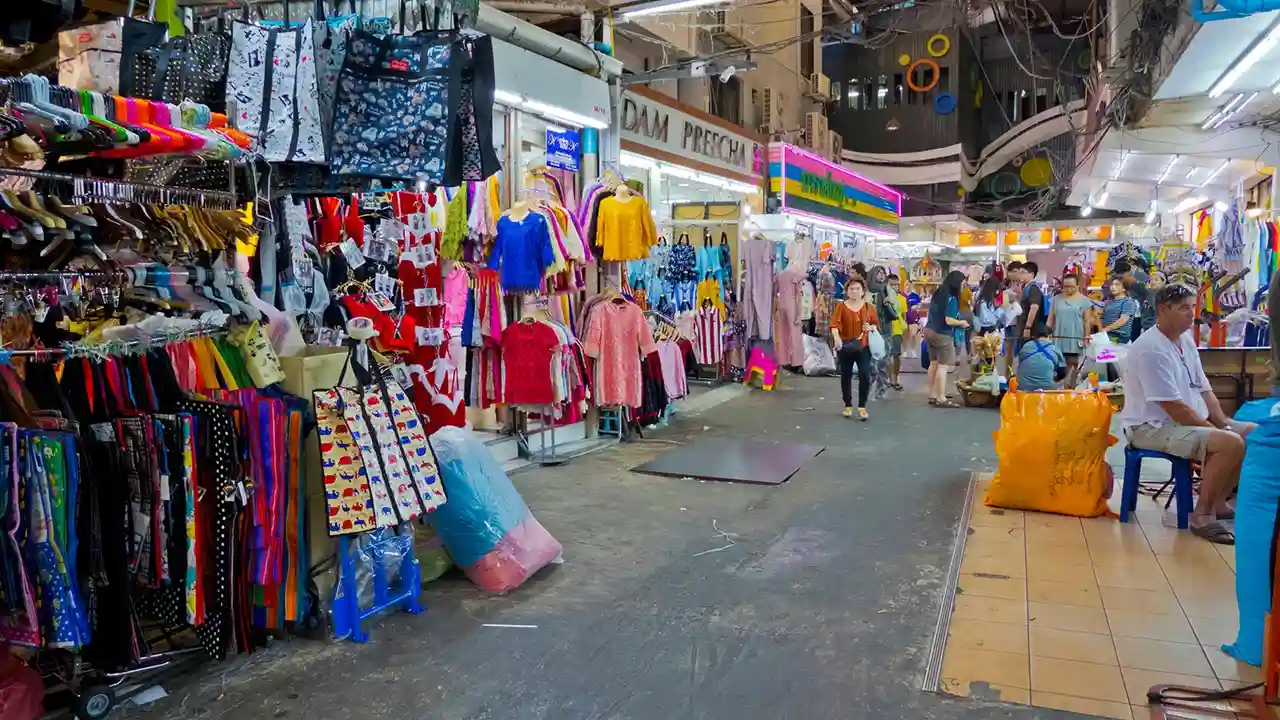Thai Superstitions: Beliefs and Practices to Be Aware Of

Introduction to Thai Superstitions and Their Cultural Significance
Hey there, welcome to the fascinating world of Thai superstitions! Thailand is a land steeped in rich traditions and beliefs, and superstitions play a huge role in everyday life. They're not just quirky little things; they're deeply intertwined with the culture and history of the country. Understanding these superstitions can give you a real insight into the Thai mindset and help you navigate social situations with ease. So, buckle up and get ready to explore some of the most common and intriguing Thai beliefs!
Lucky Numbers and Colors in Thai Culture
Numbers and colors hold significant meanings in Thailand. For example, the number 9 (เก้า, gao) sounds like "progress" (ก้าว, gao) in Thai, making it a very lucky number often associated with success and advancement. You'll see it everywhere, from car license plates to phone numbers. On the other hand, the number 13 is generally considered unlucky, similar to Western cultures. Colors also have their own associations. Yellow is the color of royalty and is often worn on Mondays, the King's birthday. Pink is considered a lucky color and is often worn on Tuesdays. Black, while sometimes associated with mourning, can also represent strength and resilience.
Common Thai Superstitions About Good Luck and Bad Luck
Thais have many superstitions surrounding good and bad luck. For example, cutting your hair on Wednesday is considered unlucky, as it's believed to bring bad luck to your finances. Stepping over someone is also a major faux pas, as it's considered disrespectful and can bring bad luck to both parties. On the other hand, offering food to monks (making merit) is a common way to gain good karma and bring good fortune. You'll often see small spirit houses (san phra phum) outside homes and businesses, where offerings are made to appease the spirits and ensure good luck.
Thai Beliefs About Ghosts and Spirits (Phi)
Ghosts and spirits, known as "phi" in Thai, are a major part of Thai folklore. There are many different types of phi, each with its own unique characteristics and origins. Some are benevolent and protective, while others are malevolent and mischievous. One of the most well-known is Phi Krasue, a floating female head with dangling entrails. People often wear amulets or perform rituals to protect themselves from harmful spirits. Many Thai homes have a spirit house (san phra phum) where offerings are made to appease the spirits and keep them happy.
Superstitions Related to Thai Temples and Religious Practices
Visiting temples (wats) in Thailand is a must-do, but there are certain rules and superstitions to keep in mind. Dress modestly, covering your shoulders and knees. Never point your feet at a Buddha image, as it's considered extremely disrespectful. When entering a temple, remove your shoes. Always accept items offered with your right hand, as the left hand is considered unclean. Making donations to the temple is a way to gain merit and bring good luck.
Thai Wedding Superstitions and Traditions
Thai weddings are steeped in tradition and superstition. The timing of the wedding is carefully chosen based on auspicious dates and times determined by astrologers. The bride and groom often wear traditional Thai clothing. The ceremony includes several symbolic rituals, such as the pouring of water over the couple's hands (rod nam sang) and the tying of sacred threads around their wrists (sai monkhon). These rituals are believed to bring good luck, prosperity, and a long and happy marriage.
Superstitions About Pregnancy and Childbirth in Thailand
Pregnancy and childbirth are surrounded by numerous superstitions in Thailand. Pregnant women are often advised to avoid certain foods, activities, and places to protect themselves and their unborn child. For example, they may be told not to attend funerals or look at ugly things, as it's believed to affect the baby's appearance. After giving birth, the mother undergoes a period of confinement (yu fai), where she follows strict dietary and lifestyle rules to regain her strength and health. Amulets and protective charms are often placed near the baby to ward off evil spirits.
Thai Funeral Superstitions and Customs
Thai funerals are solemn events filled with specific rituals and customs. The body is typically kept at home for several days before the cremation. Monks chant prayers to guide the deceased's spirit to the afterlife. White clothing is worn as a sign of mourning. Gifts and donations are often given to the temple in the deceased's name. Specific rules are followed to ensure the deceased's spirit is at peace and doesn't return to haunt the living.
Amulets and Sacred Objects: Protecting Yourself with Thai Superstitions
Thai amulets (phra kruang) are small, sacred objects believed to possess magical powers. They are worn to protect against harm, bring good luck, and enhance various aspects of life, such as wealth, health, and love. Different amulets have different powers and are blessed by monks. They are made from various materials, including clay, metal, and bone. Wearing amulets is a common practice in Thailand, and many people collect them as a hobby and a form of spiritual protection.
Recommended Amulets and Related Products
So, you're interested in getting an amulet? Here are a few popular options and where you might use them:
Phra Somdej Amulet - For General Good Luck and Protection
Phra Somdej amulets are among the most revered and popular in Thailand. They are believed to bring good luck, protection from harm, and overall well-being. They are often worn daily, especially by those seeking general blessings. You can find them in most temple shops and amulet markets. A basic Phra Somdej amulet can cost around $20, while older, more powerful versions can fetch thousands. Consider a simple silver chain to wear it around your neck.
Use Case: Wearing it daily for general protection and good fortune in all aspects of life.
Takrut Amulet - For Specific Protection and Power
Takrut amulets are cylindrical scrolls containing sacred inscriptions. They are believed to possess specific powers, such as protection from accidents, enhanced charisma, and improved business ventures. Takrut amulets come in various sizes and materials, each with its own unique purpose. Small takrut are often worn on necklaces, while larger ones can be displayed in homes or businesses. Expect to pay anywhere from $30 to several hundred dollars depending on the materials and the monk who blessed it. You can find waterproof cases for them.
Use Case: Wearing it when traveling or engaging in risky activities for protection.
Pidta Amulet - For Blocking Out Negativity
Pidta amulets depict a Buddha figure covering his eyes with his hands. They are believed to block out negativity, distractions, and harmful influences. Pidta amulets are often worn by those seeking peace of mind, concentration, and protection from gossip and slander. They are particularly popular among business owners and those in competitive fields. Prices range from $25 to hundreds of dollars. Consider a simple cord to tie around your waist.
Use Case: Wearing it during important meetings or negotiations to maintain focus and block out negative energy.
Comparing Amulets: Which One Is Right for You?
Choosing the right amulet depends on your specific needs and intentions. Phra Somdej is a great all-around option for general good luck. Takrut is ideal for specific protection, while Pidta is best for blocking out negativity. Research different types of amulets and consult with experienced collectors or monks to find the one that resonates with you. Consider the materials, the monk who blessed it, and the intended purpose.
Modern-Day Relevance of Thai Superstitions
Even in today's modern world, Thai superstitions remain deeply ingrained in daily life. People still consult astrologers for important decisions, make offerings to spirits, and wear amulets for protection. While some may dismiss them as old wives' tales, many Thais believe that these superstitions hold real power and can influence their lives for better or worse. They provide a sense of comfort, guidance, and connection to the past.
:max_bytes(150000):strip_icc()/277019-baked-pork-chops-with-cream-of-mushroom-soup-DDMFS-beauty-4x3-BG-7505-5762b731cf30447d9cbbbbbf387beafa.jpg)






